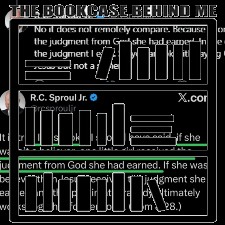It’s a devastating realization when you come to see that the church or church body you’ve been a member of has gone astray – either by teaching false doctrine or embracing practices not in keeping with the historic Christian faith. But how do you know when you’re right to leave such a church that has fallen into heterodoxy or even heresy? And how can you do so with a gentle spirit, without falling into sinful schism?
What is Sinful Schism?
The dictionary definition of “schism” simply means a split or division. But as discussed in Part 1 of this series, sometimes separating from error and false teaching is necessary, biblical and faithful. The type of schism that becomes sinful is more akin to the “divisiveness” described negatively in Scripture:
“Mark them which cause divisions and offenses contrary to the doctrine which ye have learned; and avoid them.” (Romans 16:17) “A false witness that speaketh lies, and he that soweth discord among brethren.” (Proverbs 6:19) “These be they who separate themselves, sensual, having not the Spirit.” (Jude 1:19) “Reject a divisive man after the first and second admonition; Knowing that such a person is warped and sinning, being self-condemned.” (Titus 3:10-11)
In short, someone is guilty of sinful schism when their reasons for leaving a church do not align with Scripture or true concerns of conscience. Schismatics tend to go out of their way to slander, make a bombastic show of leaving, or express exaggerated hurt feelings. It’s an unbiblical approach of “lighting the match and watching the place burn.”
3 Things to Consider Before Leaving
With those cautions in mind, here are three things to prayerfully consider as you contemplate exiting a wayward church body:
- The church body is noticeably irreformable. If a church slips into error but is open to correction, that’s different than one unwilling to repent of ingrained errors. Even the Lutheran reformers originally hoped the Church of Rome could be reformed from within. But when it became clear the papacy was beyond reform, they had no choice but to leave.
- Your concerns are biblical, not personal. Beware the temptation to see yourself as a “pocket reformer.” Luther was called to a specific time and need. In our day, faithfulness more often looks like quiet pursuit of truth. Know what is at stake doctrinally and why it matters to separate from the error in your midst. Be ready to humbly explain your reasoned biblical convictions (1 Peter 3:15).
- You’ve attempted to address concerns with reverence. We have a duty first to God and His Word, then to the faithful, and finally to those in error – not placing unnecessary stumbling blocks by lashing out in anger (see the previous podcast with Pastor Jackson). Express issues with gentleness and respect. If you’ve sought godly counsel, prayed, and appealed to no avail, let not your conscience be troubled in leaving.
The Way Forward In Part 3, we’ll discuss where to go once you’ve faithfully left an irreformable church body. What does continuing in the work of the church look like? It won’t be easy, but with Christ at the center, it will be worth it. Until then, pray for wisdom as you seek to serve your King






